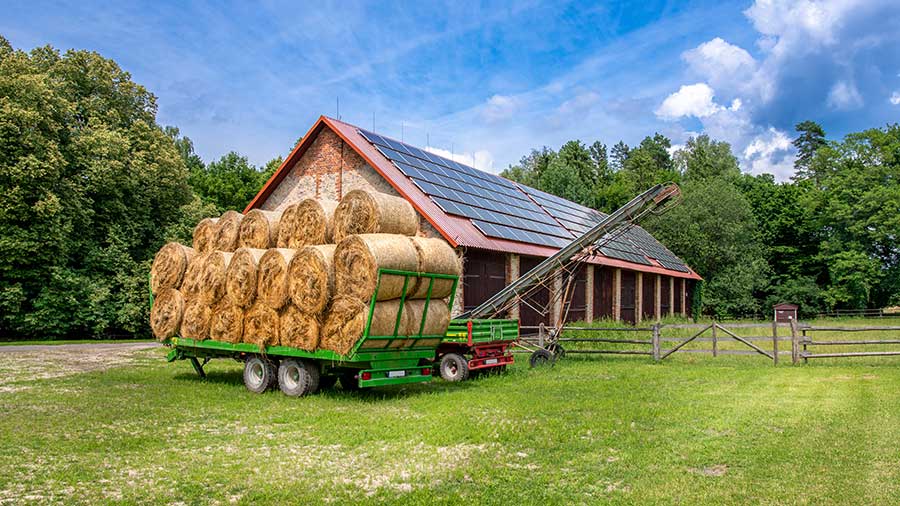Opinion: Tackling climate change can benefit the bottom line
 © Logorytm/Adobe Stock
© Logorytm/Adobe Stock In 2019’s Achieving Net Zero report, NFU president Minette Batters states that the organisation “has set the ambitious goal of reaching net-zero greenhouse gas (GHG) emissions across the whole of agriculture in England and Wales by 2040”.
“This is our contribution to the UK’s ambition of net zero by 2050,” she adds.
But what does net zero mean to you?
See also: Climate change is here – don’t believe the deniers
I’ve found reactions to this question vary widely. Some consider it insufficiently ambitious given agriculture’s almost unique ability to act as a sink – not merely a source – of GHGs.
Some relish the challenge, while many seem vaguely aware of the target, but perhaps don’t understand how it relates to their own business.
A sizeable minority are vocally opposed, however, with some citing their opinion that net zero is some “woke” plot to undermine capitalism, others that climate change itself is overblown, or an outright hoax.
Let us proceed from the fact that climate change is real, and that it is incumbent on agriculture to do its bit in trying to turn the tide.
After all, as an industry we are responsible for some 10% of our national GHG emissions, including significant quantities of particularly warming nitrous oxide and methane.
Yet, set against the international backdrop of still-increasing GHGs and the dimming possibility that we may limit the global average temperature rise to 1.5C, perhaps it is worth emphasising that, for individual farm businesses, net zero should not necessarily be seen as the destination, but as the journey – as the mechanism to drive greater resilience, efficiency and profitability into their systems.
Take synthetic fertilisers (nitrogen, phosphate and potash). They account for some 70% of the average UK arable farm’s GHG footprint. They’re also incredibly expensive.
By optimising and reducing their use – through improved soil and plant nutrient monitoring, greater use efficiency, adoption of precision applications, utilisation of nitrogen inhibitors and exploitation of nutrient-smart rotations and cover crops, including greater use of organic manures – farms can massively reduce their greenhouse footprint and reduce their reliance on external inputs, while saving large amounts of money.
Or how about the livestock unit that invests in on-farm renewables generation, not only to reduce its exposure to now cripplingly expensive energy costs, but also to reduce its scope-2 emissions from bought-in conventional power – at a time when national shortages and blackouts are back on the horizon?
Any surplus generated may even be sold to generate an additional income stream.
Practices in any farming system that increase levels of soil organic matter may be used in time for carbon trades, but at any rate will help build fertility, resilience and productivity into a farm’s primary asset – and help balance the carbon books, which in time will lead to preferential rates on finance.
Efficiency gains, boosting renewables generation, and carbon sequestration – these are the three pillars of the net-zero ambition. They also make sound business sense.
Net zero isn’t something that we should be afraid of. Yes, we have a moral (and, by 2050, legal) obligation to act on our own emissions for the greater good.
Climate change is the greatest challenge facing humanity. But lowering our emissions can also march in lockstep with more efficient and profitable farm businesses.
That’s an ambition anyone can get excited about.

